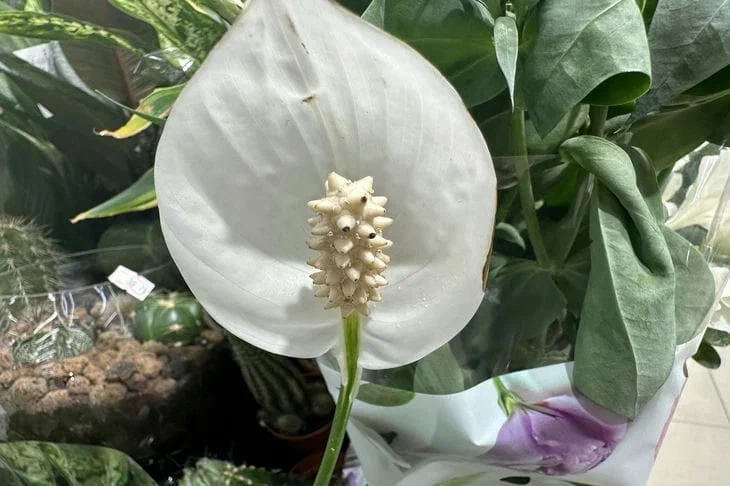What indoor plants have no place in the house if there are small children in the family: be careful
Children are very inquisitive and love to explore the world around them. They often reach out to objects that may be dangerous to them.
The list also includes houseplants, so we suggest you find out as soon as possible which flowers' leaves should never end up in your baby's playful hands.
Spathiphyllum
This plant, from whose wonderful emerald greenery white flowers with pimply pistils rise, is often chosen to combat dust and harmful fumes.
But it is important to remember that spathiphyllum contains calcium oxalate – this compound is toxic even for adults, let alone children.
Dieffenbachia
We won’t argue – the large-leaved exotic plant looks truly impressive, but it also contains the calcium oxalate that is already well known to us.

Philodendron
Poisonous juice, which can cause skin dermatitis, burning in the mouth and throat, vomiting and other unpleasant consequences, can hardly be considered an advantage of the philodendron with its beautiful elastic leaves of bizarre shape.
Syngonium
Bright green leaves with contrasting white relief veins are capable of secreting juice, which, when it comes into contact with the skin, causes unpleasant burns, and when it gets inside the body, leads to food poisoning.
Caladium
You can recognize caladium by its heart-shaped leaves with pink, purple or crimson veins. Because of their unusually attractive appearance, people even call them "angel wings". However, due to the calcium oxalates present in the flowers, stems or leaves of the plant, there is every chance of seeing angels, so to speak, with your own eyes.
Earlier we talked about how to wean a child off a smartphone.
